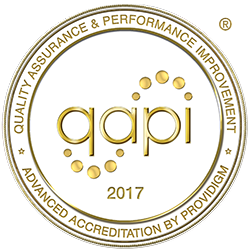Contact Tracing for COVID-19
This is a message from the Louisiana Department of Health Emergency Operations Center (LDH EOC) for the Louisiana Health Alert Network (LA HAN) recipients. This message is from Dr. Frank Welch regarding Contact Tracing for COVID-19. Please share and distribute with relevant stakeholders and partners through your own distribution channels.
05/18/2020: INFORMATIONAL NOTICE: Contact Tracing for COVID-19 in Louisiana
Contact Tracing: What you and your patients need to know
Summary
The Louisiana Department of Health (LDH) has implemented a plan for COVID-19 testing and tracking that is now underway. The plan involves hiring as many as 700 Louisiana residents who will serve as “contact tracers,” interviewing and advising people who have tested positive for COVID-19 to determine who in their lives could also be at risk.
LDH is working with two contractors, Accenture and Salesforce, to manage the contact tracing process. Two Louisiana-based call centers with 100 percent Louisiana agents are being activated and will be based in the Lafayette and New Orleans areas.
Contact Tracing Process
- A contact tracer is a public health worker who attempts to identify all people who were exposed to someone with COVID-19
- People who test positive will be called by a contact tracer.
- The number that will appear when the contact tracer calls is 877-766-2130. Please alert your patients to this number and suggest they add it to their phone’s recognized contacts.
- The contact tracer will ask questions about the person’s health status, where they have traveled, who else they have been in contact with during the time the person was contagious.
- The contact tracer then notifies any close contacts that they have been exposed to the virus.
- Contact tracers will advise the close contacts to stay home, monitor their symptoms, and may advise them to get tested.
- They will also try to link the person who tested positive to important health and social services that might be needed while they are required to stay at home.
- The contact tracer will also try to link the close contacts to important health and social services (that they may require to stay home).
- To protect privacy, those who are called by a contact tracer are only informed that they may have been exposed to the virus on a certain date; they are not told the identity of the person who may have exposed them.
Your patients may be contacted by a contact tracer
Contact tracers call people who test positive for the virus to have a conversation about how they’re doing, offer information, share health and safety recommendations, and understand how many close contacts this person had while they were contagious.
Contact tracers talk with those who test positive for a disease to ask them who else they have been in contact with while they may have been contagious.
These public health workers will then call those close contacts to see if they may be sick and provide them with important information on what to do if they start to feel sick.
Please see attached infographic you can print and hand to all patients who you test for COVID-19.
What are people being told when contacted?
- Steps to take if you have possible or confirmed COVID-19.
- Stay home from work, school, and other public places.
- When at home, stay in a specific room and away from others, and use a separate bathroom
- Cover your cough and sneezes.
- Monitor your symptoms.
- Get rest and stay hydrated.
- Wash your hands often with soap and water for at least 20 seconds or use a hand sanitizer that contains at least 60% alcohol.
- Avoid sharing personal items with other people in your household.
- Clean all surfaces that are touched often, like counters, tabletops, and doorknobs. Use household cleaning sprays or wipes according to the label instructions.
- If you have a medical appointment, call your healthcare provider and tell them of your COVID-19 status.
- Call 911 for medical emergencies and alert them that you have or may have COVID-19.
LDH EOC

